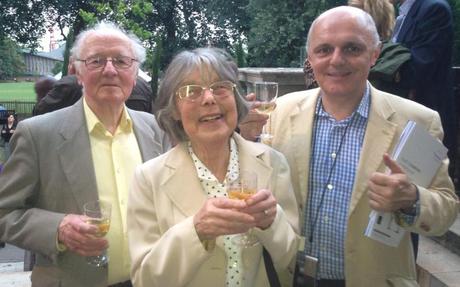
Every time he hears the comment: "You can't do anything for someone with Alzheimer's disease," Prof. Peter Garrard becomes frustrated. "I immediately think: 'Keep those people away from my patients,'" he says. "My goal is to treat a person with dementia with dignity and respect. It is not helpful to assume that all is lost and rush straight to the end stages of the disease."
He was not always a scholar: he obtained his first degree in classics at Oxford. "But I became fascinated by the philosophy of mind and the problems of consciousness," he says. "Personal identity also interests me enormously. What makes 'me' who I am? It is one of the first questions we ask ourselves in childhood."
These questions led him to medicine and then to neurology, and he is now a professor at St George's Hospital in London, specializing in neurodegenerative dementia, cognitive disorders, progressive language disorders, early dementia and frontotemporal dementia.
When making a diagnosis, Garrard, 63, finds clues in the language his patients use. "They start using less complex words and describing things in a roundabout way," he says. "One of the first questions I ask when a new patient comes in is 'how did you get here today?' When they answer: 'I came on the big thing' [instead of the bus] or 'I have arrived at the place where people go in and out' [instead of the station, then I'm afraid that's a sign." People in the early stages of dementia often lose their confidence and decisiveness in how they present themselves, he says.
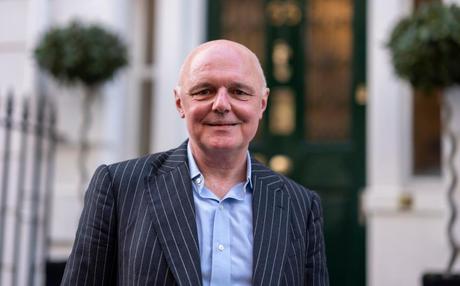
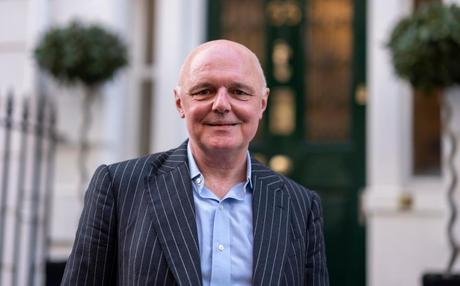
By the time his own mother, Sheila, started showing these symptoms, he had been a consultant for 12 years. She was 78. "I started noticing that Mum was not picking up on subtle aural messages," he says. "For example she didn't recognise my voice when she answered the phone.
"Otherwise, she would confuse similar-sounding but very different words: my favourite absurd conversation resulted from confusion of the word 'Stoke' [the city] and 'steam' [the mammal].
The story continues
"My mother was always well read, but her language degenerated and she used simpler words. Everything would be 'nice' or 'bad' rather than attractive, pleasant or unpleasant."
His first reaction was: Doing something. "It's the strongest impulse to fix things for your mother," he says. "I always think it's better to come up with a practical plan so that we can try something. I wanted Mom to be judged, but not dismissed, either by an insensitive portrayal of the truth or by false reassurance that nothing was wrong. But I also faced the dilemma of whether it was right to share my suspicions with my family. It is always very difficult to determine the right time to do this to a patient, even though deep down most people know that this is what is wrong with them.
He first discussed the matter with his father. "We kind of brought it up in conversation at the same time; I called it 'mild cognitive impairment' and emphasized the need to prevent decline," says Garrard. "I also followed this line with her, and she agreed to everything I suggested. On some level she 'knows'. Once when I went to visit, she took me aside and asked, "Am I okay?"
Sheila was eventually seen by a neurologist at the local hospital, who correctly diagnosed Alzheimer's disease and prescribed a drug called memantine. "I thought this was reasonable and that it probably improved her cognitive skills for a while," says Garrard. "However, I also thought she would benefit from donepezil. But the psychiatrist we consulted did not believe it would be useful."
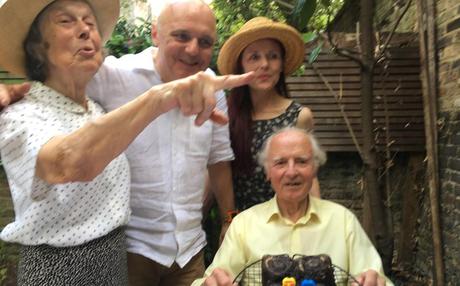
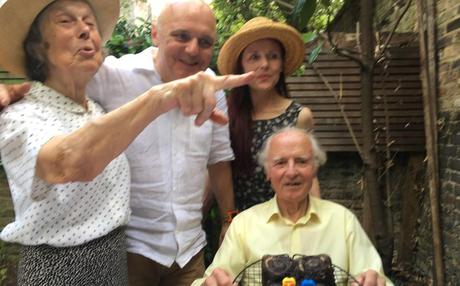
At the time, Garrard was working with a group from Oxford who had discovered that specific doses of B vitamins slowed cognitive and brain imaging progression in mild cognitive impairment by lowering levels of a harmful amino acid called homocysteine. "My mother used these religiously for years," he says.
And so she continued 'independently' for a while, walking, socializing and even playing tennis. It wasn't until the last few years that she needed significant help.
"Of course this was a difficult time for me, but it was harder for my sisters, who were convinced that I had to be able to do something to stop the progression of the disease," says Garrard. "I knew that everything possible had already been done, but it was still painful to have to explain this."
Sheila always felt like she had someone with her, so there were never any concerns about her safety or whereabouts, Garrard recalled. His older sister in particular had to bear the brunt of helping Sheila with daily care: shopping, cleaning, taking her hair to the hairdresser. "My father was devoted to Mom and saw caring for her as a duty he had alone, even though he was physically weak; his natural stubbornness was not always an asset."
Garrard found some of the existing dementia care 'depressing'.
"I went to a few memory clinics with my mother and there didn't seem to be a need to get to know the patient, just to check the box and prescribe the drug. When I look back, I don't think I did enough for my mother," he says. "I don't think I did enough for my father either, and that feeling is even more acute considering how much they both did for me when I was young."
The family persuaded Mr Garrard senior to allow some carers to visit the home, but two months later - in October 2021 - he died. "At that moment we knew mom had to go to a nursing home," says Garrard. "It may sound surprising, but I knew very little about this world, especially in the West London area where my parents lived."
He describes residential care for dementia patients as "not great. In some nursing homes they are even dropped off in a special place," he says. "My sister and I visited such an establishment. And even though we decided there was no way our mother would move there, I found it enlightening.
"One resident was a retired classics master who spoke Ancient Greek (and was surprised to hear me respond in kind). Another was a woman whose failing memory led her to believe that everyone she met was a long-lost friend. I remember my sister being enchanted by both of them. Not all dementia patients are aggressive, and people often forget that."
Eventually they found a wonderful little care home, run by a former high-ranking nurse, who 'couldn't do enough' for his patients.
"We decided Mom would be overwhelmed by my dad's funeral, so she spent the day there," Garrard says. "When we picked her up, she asked, 'Can I come back here?' My mother moved in and spent the last year of her life in a very good place." Sheila died in July 2022.
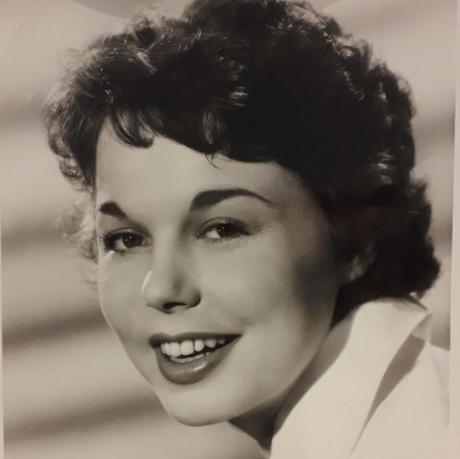
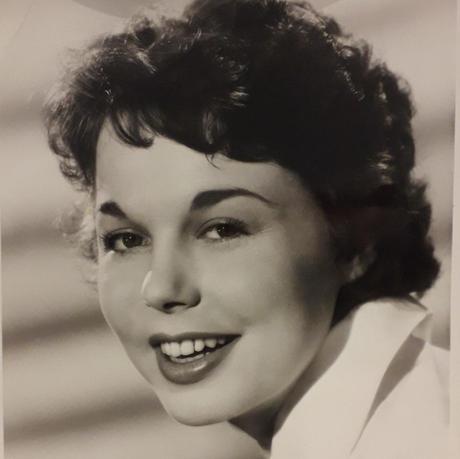
Garrard says the experience with his own mother taught him a lot about how to behave toward dementia patients and their families. "Although it may sound incongruous, I think it is very important to incorporate an element of fun into the consultations," he says. "This is easy when you are dealing with people suffering from frontotemporal dementia, who can be irresistibly energetic and cheerful. For example, during my first meeting with a gentleman, he quoted a speech from his favorite movie and told me that I reminded him of Anthony Hopkins. The next time we met, he bellowed, "Good afternoon, Anthony!" ... 'That will be Sir Anthony for you," I joked back."
The personal touch is so important, he emphasizes, and one of his ongoing professional concerns is keeping patients out of hospital. "A withdrawal has an immediate and very negative effect on a person's well-being and cognition," he says.
Garrard recently joined the Geller Commission, an initiative started by Laurence Geller, the businessman and philanthropist. "Our goal is to prevent hospital admissions and push for the crucial improvement in early diagnosis of dementia," he says. "The new drugs are in the early stages and we do not yet know whether they can halt the progression of dementia. But if they can, early diagnosis is crucial."
While doctors hope that the medicines will improve, Garrard emphasizes that a person can do a lot themselves to reduce the risk. "My usual advice is to think of something you enjoy doing, but would also find challenging," he says. "This includes intellectual engagement, but not necessarily puzzles. Exercise is really important. A Mediterranean diet, supplemented with B vitamins: these are simple, harmless and cheap treatments."
Garrard's most important recipe, however, is: "kindness, with a touch of gentle humor".
He adds: "As a young woman my mother had worked as an actress, and over the years we developed a repertoire of mainly comedy routines, which continued to entertain her even in the last months of her life," he says. "Nobody benefits from an atmosphere of doom and gloom."
Recommended'At 51, my wife started craving sugar - we had no idea it was dementia'
read more
